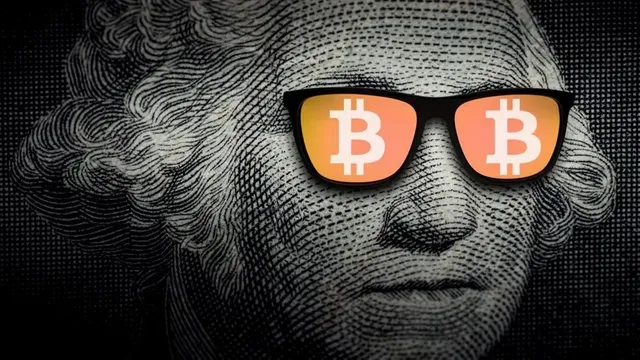Bitcoin: Empowering the World Through Decentralization
In the midst of the digital revolution, Bitcoin has emerged as a beacon of hope, offering not just a currency but a transformative vision for the future. Let’s explore the intricate ways in which Bitcoin is reshaping our world, one transaction at a time.

Table of Contents:
Financial Inclusion: Breaking Down Barriers
- The Global Unbanked Population
- Bitcoin’s Role in Financial Inclusion
- Case Studies: Empowering the Unbanked
Borderless Transactions: Redefining Global Commerce
- Limitations of Traditional Financial Systems
- Bitcoin’s Solution: Borderless Transactions
- Real-World Applications and Impact
Decentralization: Liberating Financial Systems
- Centralized vs. Decentralized Systems
- How Bitcoin Works: The Power of Decentralization
- Security, Transparency, and Trust
Store of Value: A Digital Gold Standard
- Understanding Bitcoin’s Finite Supply
- Deflationary Nature and Its Implications
- Bitcoin as a Safe Haven Asset
Innovation Catalyst: Driving Technological Advancements
- Beyond Bitcoin: The Blockchain Revolution
- Blockchain Applications Across Industries
- From Smart Contracts to Decentralized Finance (DeFi)
Financial Sovereignty: Taking Control of Wealth
- Privacy and Autonomy in Financial Transactions
- Bitcoin Wallets: Tools for Financial Sovereignty
- Challenges and Future Prospects
Resilience Against Fiat Currency Devaluation: Safeguarding Wealth in Turbulent Times
- Historical Context: Fiat Currency Devaluation
- Bitcoin as a Hedge Against Economic Instability
- Case Studies: Countries Embracing Bitcoin
Recent News: Strengthening Bitcoin's Influence
- Institutional Adoption: A Game-Changer for Bitcoin
- El Salvador’s Bitcoin Adoption: A Paradigm Shift
- Regulatory Developments: The Road to Mainstream Acceptance
Financial Inclusion: Breaking Down Barriers
In a world where access to financial services is often limited, Bitcoin emerges as a lifeline for the unbanked and underbanked. Through its decentralized nature, Bitcoin offers a pathway to financial inclusion, enabling individuals to participate in the global economy without the need for traditional banking services. Case studies from regions like Sub-Saharan Africa and Southeast Asia highlight the transformative impact of Bitcoin on communities previously excluded from the financial system.
Borderless Transactions: Redefining Global Commerce
Traditional financial systems impose barriers to international transactions, including high fees and lengthy processing times. Bitcoin revolutionizes global commerce by facilitating fast, secure, and cost-effective transactions across borders. Real-world applications, such as cross-border remittances and e-commerce, demonstrate how Bitcoin is reshaping the way we think about conducting business on a global scale.
Decentralization: Liberating Financial Systems
At the core of Bitcoin lies its revolutionary decentralized network, which operates independently of central authorities or intermediaries. This decentralization ensures security, transparency, and trust in financial transactions, mitigating the risks of censorship, manipulation, and fraud associated with centralized systems. By empowering individuals with control over their financial assets, Bitcoin challenges the status quo and paves the way for a more equitable and inclusive financial system.
Store of Value: A Digital Gold Standard
With its fixed supply and deflationary nature, Bitcoin has garnered recognition as a digital store of value akin to gold. Investors seeking refuge from inflation and economic uncertainty turn to Bitcoin as a hedge against fiat currency devaluation. Its increasing adoption as a long-term investment asset by institutions and individuals alike underscores its role as a reliable store of wealth in an ever-changing economic landscape.

Innovation Catalyst: Driving Technological Advancements
Bitcoin’s success has catalyzed a wave of innovation in the broader blockchain and cryptocurrency ecosystem. Beyond its role as a digital currency, blockchain technology holds the potential to revolutionize various industries, from supply chain management to healthcare and voting systems. Concepts such as smart contracts and decentralized finance (DeFi) are reshaping traditional business models and paving the way for a more decentralized and transparent future.
Financial Sovereignty: Taking Control of Wealth
In an age of increasing surveillance and censorship, Bitcoin offers individuals greater control over their financial assets and privacy. By transacting pseudonymously on the Bitcoin network, users preserve their financial autonomy and protect themselves from government overreach and financial censorship. However, challenges such as regulatory uncertainty and technological barriers remain obstacles to achieving widespread financial sovereignty.
Resilience Against Fiat Currency Devaluation: Safeguarding Wealth in Turbulent Times
Bitcoin’s decentralized nature and limited supply make it an attractive hedge against fiat currency devaluation and economic instability. In regions plagued by hyperinflation and currency crises, Bitcoin offers individuals a means to preserve their wealth and protect their savings from the ravages of inflation. Recent examples of countries like Venezuela and Zimbabwe embracing Bitcoin underscore its role as a lifeline in turbulent economic times.
Recent News: Strengthening Bitcoin's Influence
Recent developments, including institutional adoption, El Salvador’s decision to adopt Bitcoin as legal tender, and regulatory advancements, have bolstered Bitcoin’s influence and legitimacy on the global stage. Institutional investors like Tesla and Square pouring billions into Bitcoin signal a seismic shift in mainstream acceptance and confidence in its long-term value. El Salvador’s historic move to embrace Bitcoin as legal tender marks a significant milestone in its journey towards becoming a globally recognized currency. Regulatory developments, such as the approval of Bitcoin exchange-traded funds (ETFs) in various countries, pave the way for broader accessibility and adoption of Bitcoin as an investment asset.
In conclusion, Bitcoin’s impact extends far beyond its role as a digital currency; it embodies a vision of financial empowerment, technological innovation, and global solidarity. As Bitcoin continues to evolve and mature, its transformative potential in reshaping the world economy becomes increasingly apparent. Whether it's through financial inclusion, borderless transactions, or decentralized innovation, Bitcoin stands as a testament to the power of decentralization in building a more equitable and prosperous future for all.